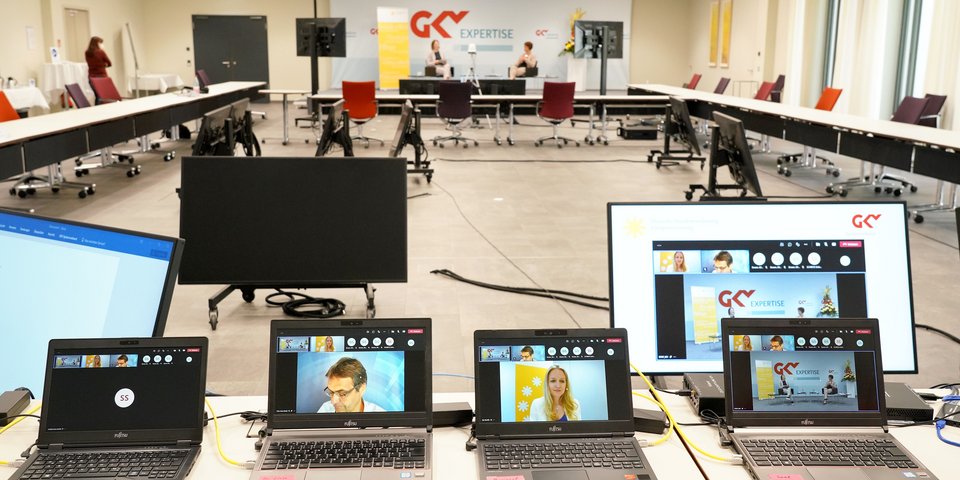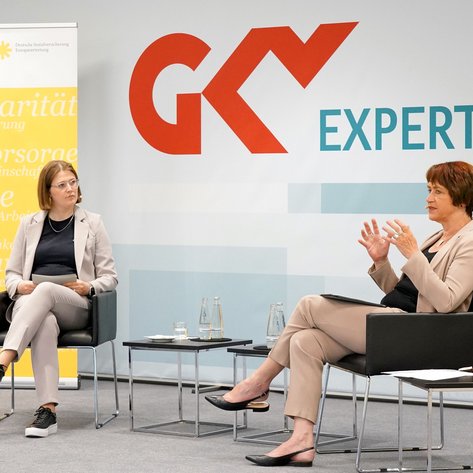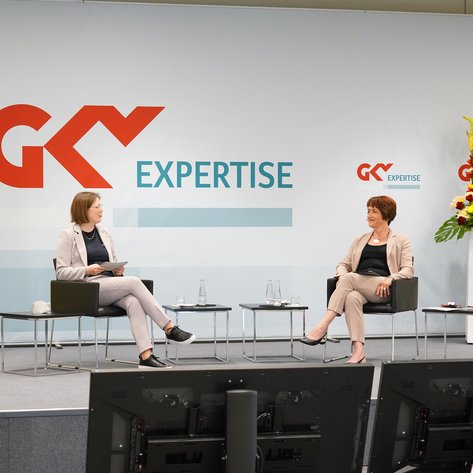
Getting a grip on cancer
Getting a grip on cancer / 14 June 2021
A review of the online event organised by the European Representation of German Social Insurance and the National Association of Statutory Health Insurance Funds
IK – 06/2021
The
fight against cancer is one of the most important as well as the most
challenging tasks currently being tackled at EU level in the healthcare sector.
The EC laid out an ambitious roadmap when it presented its plan against cancer
in February 2021. Despite all the positive developments: the fight against
cancer is a mammoth task that calls upon all parties to do much more and,
especially, to do it together.
This
is the conclusion of the "Getting a grip on cancer” online event that was
organised by European Representation of German Social Insurance together with
the National Association of Statutory Health Insurance Funds on 14 June 2021.
Dr Doris Pfeiffer, chair of the board of the National Association of Statutory
Health Insurance Funds, Dr Peter Liese, Member of the European Parliament, and
Dr Stefan Schreck, from the Directorate General for Health in the EC, discussed
the main topics of prevention, early detection and supplying medicinal products
in the fight against cancer in an exciting and constructive debate with over 130
participants.
Dr Doris Pfeiffer emphasised the importance
of fighting cancer at the beginning of the discussion. 500,000 people are
diagnosed with cancer every year in Germany. This is why the topic is, rightly,
high on the political agenda both in Germany and in Europe. The chair of the
National Association of Statutory Health Insurance Funds welcomed the EU’s
cancer plan as it included a vast number of further measures for improving
prevention, early detection, diagnosis and treatment as well as quality of life
– all of which support the efforts of the National Association of Statutory
Health Insurance Funds.
Dr Stefan Schreck pointed out that the
European action plan for combating cancer is holistic and it addresses all
policy areas with its "Health in All Policies" approach. According to
Schreck, if the interaction that worked well here was transferred into a
structured form, this would also advance the fight against cancer. The promised
investments were also assessed positively: he also reported that the EU will be
providing around four billion euros for implementing its cancer plan, some of
which will come from its EU4Health programme.
However, Dr Peter Liese still sees a need
for action with regard to preventive measures, such as increased labelling and
information, curbing advertising or tax regulations for tobacco, alcohol and
unhealthy foods. Liese also stated that according to a recent study, almost 40
per cent of all cancers could be prevented through comprehensive prevention.
Implementing early detection programmes
still remains inadequate. There is a huge potential here when it comes to
access, quality and quantity. Many Member States are making use of just three
per cent of the financial leeway made available by the EU, said MEP Manuela Ripa
in her video message. However, Liese explained that this objective is clearly
laid down in the cancer plan: The EU aims to help its Member States to provide
screening for 90 per cent of EU citizens eligible for breast cancer, cervical
cancer and colorectal cancer screening by 2025.
With regard to cancer treatment, Pfeiffer
also called for increased exchange of best practice examples at European level,
expansion of research and development and the use of data, especially in the
fight against rare forms of cancer. She also stated that health insurers must
also play their role in addressing the policyholders.
Finally, ways of achieving financially
viable and fair supplies of cancer medicines was also discussed. Liese also
said that Member States need uniform standards regarding the reliable
effectiveness of medicines, which is why the authorisation procedures at the
European Medicines Agency (EMA) are so important for patients. Pfeiffer called
for transparency in R&D costs as well as alternative pricing models.
The EC now has a duty to act, said Ilka
Wölfle, the Director of German Social Insurance, when she summed up the
discussion. She expects the EU government to provide a clear framework and
proposals that will create the tailwind that social security institutions need
for successful work, as do all of the stakeholders at European level.
Check
out our timeline on Twitter at @dsv_europa for another event recap.




